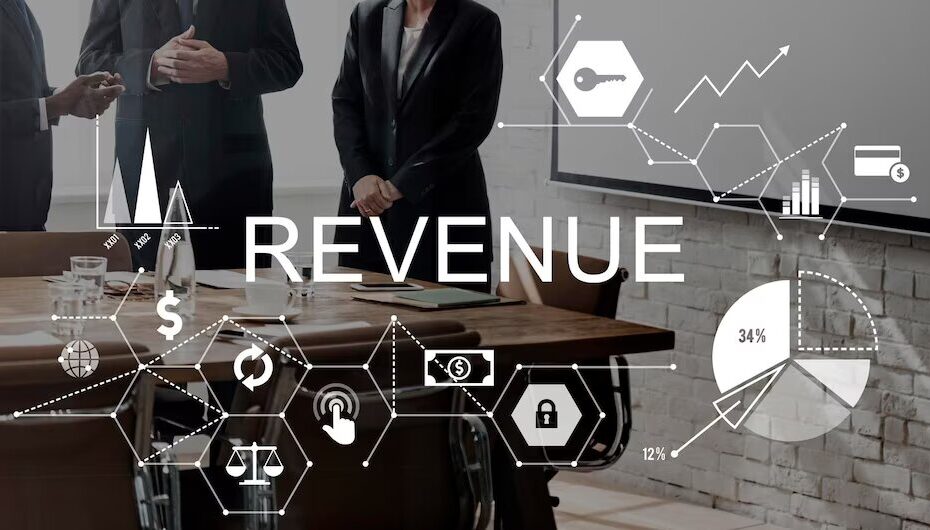In today’s highly competitive hospitality industry, revenue management has become a critical aspect of maximizing profits for accommodation owners. Revenue management is the art of strategically setting prices and controlling inventory to increase revenue and profits. It involves analyzing market trends, consumer behaviour, and competitor pricing strategies to optimize pricing and inventory management. This article will delve into the significance of revenue management for accommodation owners, specifically hotels, and why it is crucial for their long-term success.
To effectively manage revenue, accommodation owners must analyze data on the behaviour of different types of customer groups, market trends, etc. They must also develop pricing strategies that take into account factors such as seasonality, holidays, and major events. By using advanced analytics and modelling techniques, accommodation owners can create accurate demand forecasts and pricing strategies that allow them to make data-driven decisions.
Revenue management for hotels involves a complex set of processes and techniques that are designed to maximize revenue from each room sold. This is accomplished by analyzing the market, understanding customer behaviour and demand, and implementing pricing and inventory strategies that are specifically tailored to maximize profitability.
- One of the primary benefits of revenue management for hotels is the ability to forecast demand accurately. Through a combination of historical data and market trends analysis, revenue managers can predict when and how much demand will occur for different room types. This allows them to adjust room rates accordingly, increasing or decreasing prices based on anticipated demand. By doing so, they can ensure that each room is sold at the highest possible price without losing potential customers due to overly high rates.
- Another crucial aspect of revenue management is inventory management. In the hotel industry, inventory management refers to the number of rooms available for sale at any given time. Revenue managers use sophisticated algorithms and data analysis tools to monitor inventory levels and ensure that they are optimized to maximize revenue. By understanding which rooms are in demand, revenue managers can prioritize selling those rooms and adjust pricing strategies to ensure that they are sold at the highest possible price.
- Furthermore, revenue management also involves identifying and targeting specific customer segments. By analyzing customer behaviour and preferences, revenue managers can create targeted pricing and promotional strategies that are specifically tailored to each customer segment. This allows hotels to attract and retain high-value customers while optimizing pricing and inventory management strategies.
- Revenue management also plays a crucial role in maximizing profits during peak seasons. During busy periods, such as holidays or major events, demand for hotel rooms increases, and hotels can charge higher prices to maximize revenue. Revenue managers use sophisticated pricing algorithms to adjust room rates dynamically in real-time, ensuring that the hotel is always maximizing revenue during peak periods.
- Additionally, revenue management also helps to mitigate the risk of overbooking or underbooking rooms. Overbooking occurs when a hotel sells more rooms than it has available, which can result in angry customers and lost revenue. Underbooking occurs when a hotel fails to sell all of its available rooms, resulting in lost revenue. Revenue managers use advanced forecasting and inventory management techniques to mitigate these risks and ensure that the hotel is always operating at maximum capacity while minimizing the risk of overbooking or underbooking.
- Revenue management is not just about increasing room rates, but it is about optimizing revenue through the entire guest journey. Revenue management starts with understanding customer behaviour and preferences before the guest even arrives at the hotel. This involves analyzing data from various sources, including social media, online reviews, and past booking behaviour, to understand what customers are looking for in terms of amenities, services, and experiences.
- By understanding customer preferences, revenue managers can create targeted marketing and promotional strategies that appeal to specific customer segments. For example, suppose data shows that a particular segment of customers prefers spa services. In that case, the hotel can create targeted promotions and packages to attract those customers and increase revenue from that segment.
- Furthermore, revenue management also involves optimizing revenue from other revenue streams, such as food and beverage, events, and ancillary services. Revenue managers can analyze data from these revenue streams to identify trends and opportunities for increasing revenue. For example, suppose data shows that customers are more likely to purchase room service during certain hours. In that case, the hotel can adjust staffing and pricing strategies to maximize revenue during those periods.
- Effective revenue management also requires collaboration between different departments within the hotel. Revenue managers must work closely with sales, marketing, and operations teams to ensure revenue strategies align with the hotel’s overall business objectives. This requires open communication, collaboration, and a shared understanding of the hotel’s target customer segments, revenue goals, and overall strategy.
- Another benefit of revenue management for accommodation owners is the ability to optimize resource allocation. By using data-driven insights, accommodation owners can identify areas where they can allocate resources more efficiently, such as optimizing staffing levels, streamlining operational processes, and identifying opportunities to reduce costs. For example, by analyzing data on customer demand, accommodation owners can identify peak periods and adjust staffing levels accordingly, ensuring that they have the right number of staff available to meet customer needs without overstaffing during slow periods. This not only helps to improve customer service but also reduces labour costs, maximizing profitability.
- Finally, it is worth noting that revenue management is not a one-time effort but an ongoing process that requires continuous monitoring and adjustment. Market conditions, customer preferences, and competitor strategies are constantly evolving, and revenue managers need to be agile and adaptable to ensure that their revenue management strategies remain effective.
In conclusion, revenue management is essential for accommodation owners, especially in the highly competitive hotel industry. By understanding market trends, consumer behaviour, and competitor pricing strategies, accommodation owners can optimize their pricing and inventory management strategies to maximize revenue and profitability. Revenue management for hotel involves forecasting demand accurately, managing inventory levels, targeting specific customer segments, optimizing pricing strategies, and mitigating the risk of overbooking or underbooking rooms. Implementing effective revenue management strategies can help hotels increase revenue, attract high-value customers, and achieve long-term success in a highly competitive industry.



